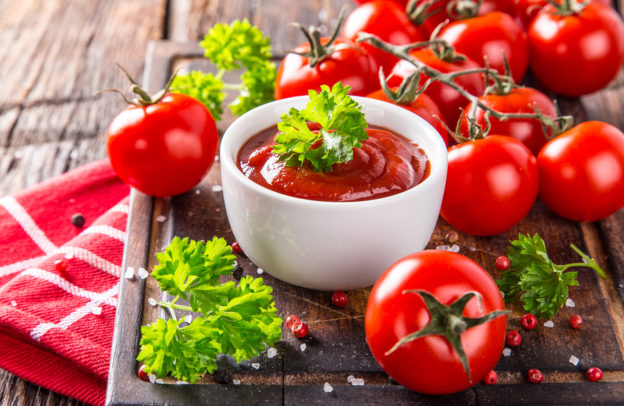By David Blyweiss, M.D., Advanced Natural Wellness
August 31, 2016
- Is a raw food diet right for you?
- Some foods are more nutritious when they’re cooked
- Here’s the perfect ratio between raw and cooked foods
Every now and then I have a patient ask me if they should go on a raw food diet. And while I applaud them for their enthusiasm, I’m not convinced that eating raw foods 75% to 100% of the time is a good idea.
However, I’m all for adding more raw foods to your diet – about a third of the time.
Fresh, organic fruit and vegetables are undoubtedly healthy. When you eat raw vegetables instead of those that are cooked, you get more fiber. This makes a raw diet especially appealing if you need to lose weight, since fiber can help you feel full longer so that you eat less.
Raw fruits and veggies are also loaded with digestive enzymes and antioxidants. However, some of these benefits may be lost when you cook them.
For example, about half of the vitamin C content of broccoli and spinach is lost when they’re boiled. And boiling pretty much depletes the glucosinolates in broccoli. (These are the compounds in cruciferous vegetables that help protect against cancer.)
Cooking also destroys enzymes in food. This can interfere with your digestive process, making it harder for your body to digest and absorb the nutrients from your food.
MD Exposes the Hidden Danger to Your Eyes

When your eyesight starts to fail, it's a real problem. Suddenly you can't go to the grocery store... you can't get to the doctor if you have an emergency... you can't meet your friends for dinner…
Your "regular" doctor doesn't have time to keep up with the latest research. And the same goes for eye doctors. They go to school to learn how to fit you for glasses and contacts, but have no way of preventing the damage and loss of eyesight that threatens your freedom and independence.
Let me show you something that explains a LOT about how your eyes work.
In my FREE Special Report, I'll show you a HUGE, untapped resource for your eyes that safely and naturally restores clear, effortless eyesight.
Click here to get started...
These are all good reasons to add more raw fruits and vegetables to your diet. But does it mean that committing yourself to a raw diet is in your best interest?
Cooking Enhances the Nutrients in Some Foods
While the nutritional benefits of eating raw plant-based foods are very real, there are also some very real benefits of cooking these same foods.
You see, the nutrient content in some foods is actually enhanced by cooking.
Tomatoes are a perfect example. Cooking releases the lycopene found in these juicy red fruits. In fact, they contain around three or more times more lycopene after they’ve been cooked than beforehand.
This may be why about three-quarters of people who eat a raw food diet have low levels of this cancer-fighting antioxidant.
And let’s take another look at broccoli.
While cooking can reduce vitamin C, glucosinolates and quercetin found in broccoli, it can also enhance the carotenoid content. This includes a big boost in lutein levels – one of the nutrients that are absolutely necessary to preserve your eyesight. So middle ground here, if you’re steaming the broccoli wait until it’s bright green then take it off the heat…it’s done.
Cooking carrots has the same effect.
Additionally, folks who go raw are often low in vitamin B12. This, in turn, can raise your homocysteine levels. High levels of this amino acid are a very strong predictor of cardiovascular risk and death.
Are You Suffering From...
- Love handles and a pot belly
- Romance that isn't what it used to
- Forgetfulness and inattention
- Low (or no) strength and endurance
- A sex drive that's shifted into neutral...or worse
If so...you may have Mature Male Burnout. Click here to discover more about this unique condition and what you can do about it.
Some raw food advocates add milk and other dairy products to their diet to help prevent vitamin B12 deficiency. Others include raw fish and extremely rare meat.
And while I’ve eaten sushi many years ago, parasites in the fish put an end to that for me. When it comes to eating meat that is not cooked to the appropriate temperature, well that just opens you up to salmonella, e. coli and other bacterial infections.
Here’s what I suggest…
Finding the Perfect Balance between Cooked and Raw Foods
For many folks, the only raw food they get in their diet is whatever they find in a salad – lettuce, cucumbers, tomatoes and the like. Maybe they eat a piece of fruit every now and then.
At the same time, a lot of people tend to cook their food to death. They’ll throw some broccoli, spinach or kale on the stove with a little water and let it simmer for a half hour or more before pulling it off the heat.
In cases like these, all of the benefits of eating raw foods – along with the ones that come with eating cooked foods – are lost.
So let’s balance that out.
I recommend eating one raw, organic, plant-based meal each day. And I’m not talking about throwing a little lettuce on a plate and drenching it with bottled dressing. There are much healthier options.
For example, you can make a mix of your favorite raw veggies and drizzle them with garlic-infused extra virgin olive oil. Add nuts, herbs and spices for more flavor and texture.
One of my go-to meals is a variety of crunchy, raw vegetables with hummus and tabouleh. The burst of flavor is reason enough to eat a meal like this… it’s also extremely nutritious and quite filling.
And you can’t go wrong with a veggie wrap. Slice up some cucumber, avocado, spinach, tomatoes and other veggies and wrap them up in a nice, big lettuce leaf.
Then, during regular meals, skip the boiling and frying.
Instead, give your veggies a light steam, toss them briefly in a wok or give them a quick blast of heat under the broiler. This will be just enough to release compounds that are enhanced during the cooking process, without robbing your veggies of their naturally occurring nutrients.
Between meals, snack on a variety of fruits to help round out your nutritional profile.
SOURCES:
Zeng C. Effects of different cooking methods on the vitamin C content of selected vegetables. Nutrition & Food Science. 2013;43(5):438 – 443.
Miglio C, et al. Effects of Different Cooking Methods on Nutritional and Physicochemical Characteristics of Selected Vegetables. J. Agric. Food Chem. 2008 Jan 9;56(1):139-47.
Garcia AL, et al. Long-term strict raw food diet is associated with favourable plasma beta-carotene and low plasma lycopene concentrations in Germans. Br J Nutr. 2008 Jun;99(6):1293-300.
Koebnick C, et al. Long-Term Consumption of a Raw Food Diet Is Associated with Favorable Serum LDL Cholesterol and Triglycerides but Also with Elevated Plasma Homocysteine and Low Serum HDL Cholesterol in Humans. J. Nutr. 2005 Oct;135(10):2372-8.







